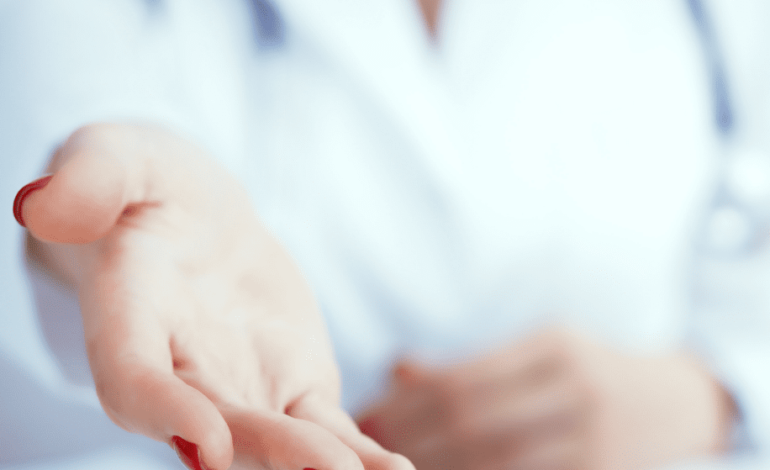“National Recovery Month started in 1989 and is a national observance held every September to promote and support new evidence-based treatment and recovery practices, the nation’s strong and proud recovery community, and the dedication of service providers and communities who make recovery in all its forms possible. This year, to address the nation’s growing crisis of substance misuse and overdose deaths, SAMHSA is launching initiatives that promote and support evidence-based treatment and recovery practices, the emergence of a strong and proud recovery community, and the dedication of service providers and community members across the nation who make recovery possible”.
We often think of recovery as a successful journey after battling addiction; the road on the other side; the good life. But often, recovery is not always happy. Grief and loss are monumental in recovery as relapse, suicide, and overdose are often the dark shadows of recovery that many people don’t want to talk about it. We often associate loss and grief with a loved one, but we can also feel these feelings for someone within our recovery community that we may have been acquainted with or not have ever personally known. In June this past year, the Tik Tok recovery community lost a kind soul; 19-year-old Cooper Noriega died from an overdose, which affected millions of people across the globe within the recovery community, even if they did not know him personally. Cooper Noriega captivated social media audiences with his recovery from substance abuse and mental health battles for three years. His sudden death from an overdose on June 9, 2022, brought even more attention to his life.
“I’ve been struggling with addiction since I was nine years old, you may think that’s crazy, but that’s the life I’ve been dealt… I would like to use the influence I’ve been given to create a space built on spreading awareness and normalizing talking about mental illness.”
-Cooper Noriega
Defining Grief
Grief is a universal human reaction after a shocking or traumatic event or experience. It is the response to a loss, not simply an emotion. There is no one correct way to grieve, as every individual and every culture grieves differently. Normal grief is characterized by sadness, anger, loneliness, guilt, a desire to join the deceased, and even a preoccupation with the circumstances of the deceased’s death. Clinically, grief is linked to the loss of a loved one; however, individuals can experience normal grief in other settings, such as the loss of a house from a natural disaster, a divorce, the loss of a pet, or a terminal medical diagnosis. Normal grief does not interfere with the individual’s functioning long after the event occurred. The individual will still be able to function in everyday life and adopt coping mechanisms to help them through this challenging period. There is no specific diagnostic criterion for normal grief, as it is not considered a mental health disorder. Although there is no “treatment,” therapists recommend a robust support system, outpatient therapy (if needed), and adopting new positive coping mechanisms to adapt to everyday life.
Talk About It
Keeping things bottled up inside can be unhealthy, especially if you hide negative feelings and potentially cover them up with harmful coping mechanisms such as food, drugs, or alcohol. On the other hand, talking about your experience with loss is an essential step in the grieving process. Talk with someone you trust, talk to a therapist, or write your thoughts and feelings down on paper. Talking through your thoughts and emotions can allow you to conceptualize what happened, help you work through any deep underlying tough stuff, help others understand what you are experiencing and maybe even raise awareness about the grieving process during recovery.
Don’t Play The “What If” Or The “Blame Game”
It may seem natural at first to wonder if you could have done something or said something to prevent this loss, but at the end of the day, the tragedy already occurred, and there is nothing you can do to change the past. Blaming yourself or blaming others is not healthy to help you move forward in the grieving process and potentially be a roadblock to a healthy recovery. Thinking about all of the “what if I did this or said this” or placing blame on yourself or others can potentially trigger you to relapse.
Learn From It
There are always lessons in loss and grief if you look deep enough. Think about the amazing things this person accomplished, how they made others feel, and the positive things in their life, and try to adopt ways to honor these things. How can you grow from this experience? How can you help build this individual’s legacy? How can you become stronger in your recovery after this experience? Sometimes it may take a lot of introspection, therapy, and developing healthy coping skills to learn from these devastating lessons, but there is always something to learn.
Express Your Emotions
Expressing your emotions, whether negative or positive emotions is important to allow yourself to feel during the grieving process. Bottling up your feelings is like not talking about what you are going through; over time, these things are “pushed underneath the rug” and may become unhealthy underlying triggers that may reappear in unwanted ways. If you are feeling sadness or anger, allow those emotions to come to the surface but be aware not to act on those emotions at the moment. Instead, sit through them, talk them through, journal through them, or practice a positive coping skill (exercising, cooking, meditating, reading, etc.) to work through these negative emotions.
Remember And Celebrate The Life Of The Deceased
Celebrating, honoring, and remembering the life of the individual who passed is important not only for your grieving process and your recovery journey but also to keep this person’s spirit alive. You celebrate and honor this person by doing something special on their birthday, cooking their favorite meal, going to their favorite restaurant, or visiting a special place that you both once shared. Treasuring past moments and keeping these memories and traditions alive is a beautiful way to celebrate this person you lost.
Take Care Of Yourself
If grief is left unchecked, it has the potential to turn into depression. It is essential to take care of yourself through this grieving process. Taking time for yourself, going to therapy, developing healthy coping skills, staying away from triggering places, people, and thoughts, and practicing self-love are all crucial ways to care for yourself during this process.
AKUA Mind and Body Treatment
AKUA Mind and Body is a full-service treatment program that offers a wide range of “east meets west” treatment modalities for many different populations struggling with mental health and substance use disorders. AKUA makes your recovery a priority. AKUA Mind and Body treats co-occurring disorders and works diligently with each client and their family to ensure that treatment is specifically tailored to their needs and not just their disorder.
AKUA Mind and Body offers detoxification, intensive treatment programs, and outpatient treatment programs. AKUA Mind and Body uses a blend of holistic approaches combined with evidence-based treatment to help individuals who have been affected by substance use and mental health disorders recognize their underlying triggers and develop healthy coping skills. Regardless of where you are in your recovery process, AKUA.



